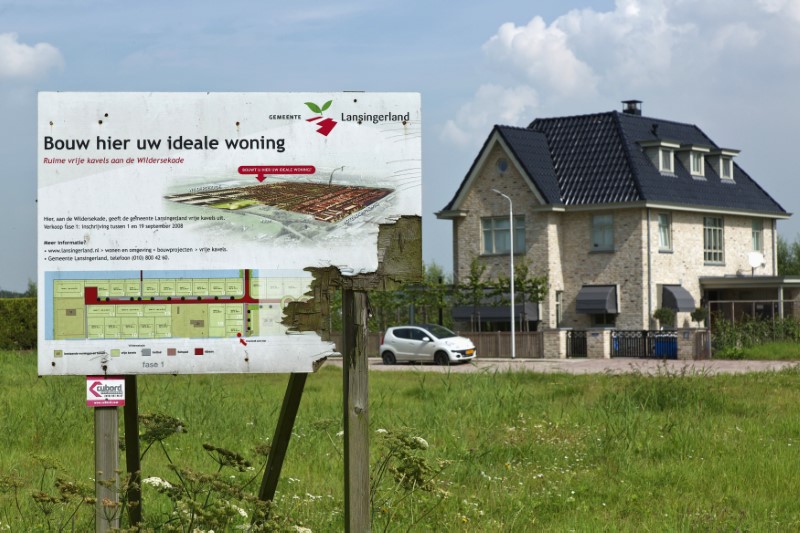By Toby Sterling
AMSTERDAM (Reuters) - The Dutch economy will grow by 2.1 percent next year, the government's forecasting office said on Tuesday, upgrading the outlook for a country set to buck a slowing trend and be one of Europe's stand-out performers in 2017.
However, it is far from clear that Prime Minister Mark Rutte will receive much credit in elections scheduled for three months' time, as voters appear ready to punish the government for years of budget cuts.
The Netherlands Bureau for Economic Policy Analysis (CPB) raised its GDP growth forecast for 2017 to 2.1 percent from a 1.7 percent estimate in September, citing strong household demand amid rising employment and rising real wages.
"Growth in the housing market is providing an extra stimulus," it said.
Contrast that with the European Commission's November downgrade for 2017 euro zone growth to 1.5 percent from 1.8 percent.
Other European capitals might look to The Hague with envy: the housing market is booming, unemployment is 6 percent and falling, and the government is set to run its first budget surplus in a decade in 2017, reducing national debt to below 60 percent of GDP.
An IMF review last week found that things may actually be better than they seem.
"It looks like the official growth statistics might not be telling the whole story of the strength of the economy," IMF Netherlands mission chief Thomas Dorsey told reporters.
"There are always risks," he said. For the trade-dependent Dutch economy: "Brexit is a big question, and the euro zone could have another downturn, but things seem to be going well."
But the good news may not have come soon enough to save Rutte at elections scheduled for March 15.
Part of the reason for the strong recovery is that the Dutch economy is playing catch-up after Rutte's austerity policies contributed to seven years of zero growth from 2008-2014, and voters seem to focus more on that than on a likely upturn.
According to a survey published over the weekend by pollster Maurice de Hond, Rutte's conservative VVD Party would lose nearly half of its 43 seats in parliament if elections were held today, trailing Geert Wilders' anti-Islam Freedom Party by 33 seats to 23.
Things are even worse for junior coalition partner Labour, traditionally one of the country's two largest parties, which stands to lose 28 of its 38 seats.
NO PRE-ELECTION GIFTS
"In a sense it's too early," for Rutte to benefit from the economic recovery, said Marieke Blom, chief economist at ING Bank, a past critic of some austerity policies as overly aggressive.
"My belief is that over there will be more appreciation over time for what the government has done over the last couple of years."
Among the many unpopular changes carried out by Rutte's government were pension age hikes, childcare subsidy cuts and reduced healthcare benefits. Government workers' wages were frozen for years, as were pensions.
In addition, even though the housing market slumped by nearly 20 percent in the wake of the crisis, the government moved to reduce tax relief on mortgage interest payments, one of the biggest perks for the Dutch middle class.
Although ING is not quite as optimistic as the CPB, and forecasts growth of just 1.7 percent for 2017 as the housing recovery slows, Blom said she was unusually positive about the state of the economy.
She said the government has both some room to lower taxes now, and to increase spending if needed in the event of a downturn.
Finance Minister Jeroen Dijsselbloem, Labour's most prominent politician, acknowledged the CPB's upgrade on Tuesday but repeated the government was not planning to hand out pre-election favours.
"I don't have any money left over at the moment," he said in a televised interview.
Asked whether he should have abandoned austerity policies earlier, he said "no."

"The idea that we destroyed the economy with spending cuts or pushed the country into a recession is just not true," he said. "We should be happy with the balanced budget."